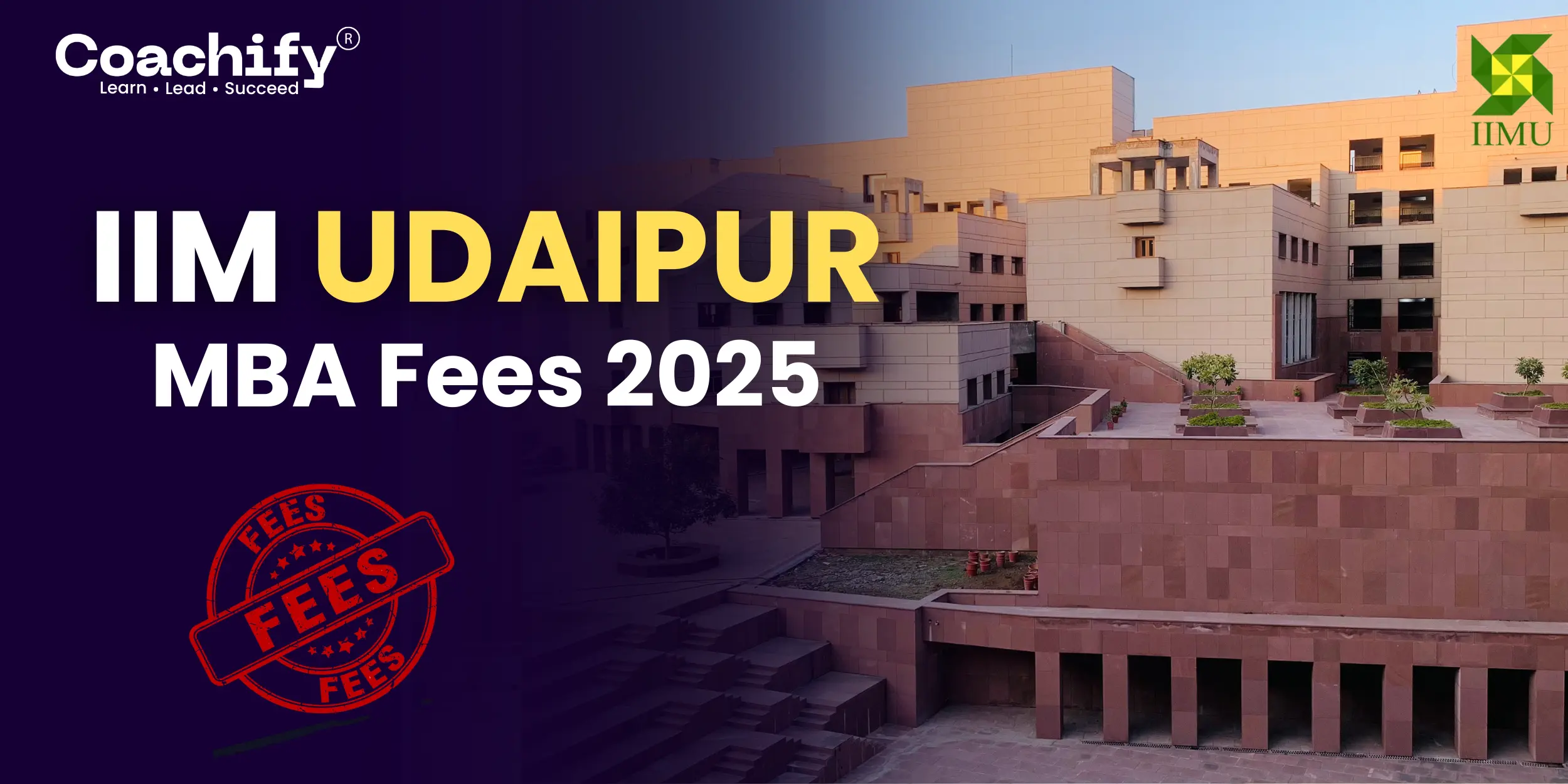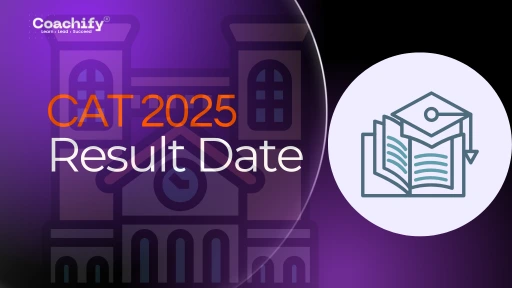After graduation, many students face the dilemma of choosing between an MBA vs MCA. Both are prestigious postgraduate degrees that can lead to high-paying careers. An MBA (Master of Business Administration) focuses on business, management, leadership, finance, and strategy, while an MCA (Master of Computer Applications) emphasizes technical expertise in IT, programming, and software development.
Join our Coachify CAT Club (WhatsApp Group) to connect with peers, mentors, and get daily updates.
Practice smarter with our CAT PYQ Zone (Previous Year Papers + solutions).
Start learning anytime with our Pre-Recorded CAT Course (200+ hours content, topic-wise practice, video solutions).

Table of Content
MBA vs MCA: Which One Is Better?
The choice between an MBA vs MCA depends on your interests and career goals.
- If you love programming, systems design, and IT applications, MCA is the better fit.
- If you want to pursue corporate management, consulting, finance, or entrepreneurship, MBA is more suitable.
Industry Reach
- MBA graduates are recruited in diverse industries such as banking, FMCG, consulting, startups, supply chain, healthcare, and IT services.
- MCA graduates find opportunities mainly in IT services, product-based companies, software development, AI, data science, cloud computing, and cybersecurity.
Institutional Impact
- Graduates from top MBA institutes (like IIM Ahmedabad, IIM Bangalore, XLRI, FMS, ISB) receive packages in the range of ₹30–40 LPA or higher.
- MCA graduates from tier-1 institutes (like NIT Trichy, University of Hyderabad, DU, JNU) usually start with ₹7–15 LPA offers from leading IT firms.
Thus, “better” is relative: it depends on your skills, passion, and long-term vision.
If you’re serious about MBA, first check IIM Admission Criteria so you know what top colleges expect.
MBA vs MCA: Admission Process (2025)
MBA Admission Process
- Entrance Exams – Candidates appear for national tests such as CAT, XAT, GMAT, SNAP, NMAT, MAT.
- Cut-Offs – Top B-schools release percentile cut-offs (IIMs/ISB need 95–99%ile, Tier-2 accept 75–90%ile).
- Selection Rounds – Shortlisted candidates undergo:
- Written Ability Test (WAT)
- Group Discussion (GD)
- Personal Interview (PI)
- Final Merit List – Prepared on the basis of exam score, academics, work experience, and GD/PI performance.
MBA admissions are competitive and multi-stage, focusing on leadership, analytical ability, and communication skills.
Related guide: CAT Exam Details 2025 – Dates, Eligibility, Syllabus, Fees.
MCA Admission Process
- Entrance Exams – Admission is mainly through tests like NIMCET, CUET-PG, TANCET, IPU-CET, or state-level exams.
- Counseling & Seat Allocation – Seats are offered based on rank, preferences, and reservation policies.
- Direct Admission (Private Colleges) – Some universities admit students directly on the basis of graduation marks (minimum 50%) and, in some cases, a personal interview/aptitude test.
MCA admissions are simpler and exam-driven, focusing on candidates with a technical or computer science background.
MBA vs MCA: Eligibility Criteria
| Criteria |
MBA |
MCA |
| Academic Background |
Bachelor’s degree in any discipline with minimum 50% marks |
Bachelor’s in BCA, or any Science/Engineering degree with Mathematics at 10+2 or graduation level |
| Final-Year Students |
Eligible |
Eligible |
| Work Experience |
Preferred (especially for executive MBAs) |
Not mandatory |
| Entrance Exams |
CAT, XAT, GMAT, SNAP, NMAT, MAT |
NIMCET, CUET-PG, TANCET, IPU-CET, state-level exams |
MBA vs MCA: Salary Comparison (India, 2025)
MBA Salary in India
- Tier-1 Colleges (IIMs, FMS, ISB, XLRI): ₹20–40 LPA average, with some international offers exceeding ₹1 crore.
- Tier-2 Colleges (NMIMS, TAPMI, Symbiosis): ₹7–15 LPA.
- Tier-3 Colleges: ₹4–7 LPA.
Specialization-Wise MBA Salary (India 2025):
Related: MBA Finance Salary in India 2025 | MBA in IT Salary in India 2025
MCA Salary in India
| Industry / Role |
Package |
| MCA Freshers (Software Development / Data Analytics / System Engineering) |
₹5–10 LPA |
| Service-Based Companies (TCS, Infosys, Wipro, Cognizant, Accenture) |
₹4–7 LPA |
| Product-Based Companies (Microsoft, Amazon, Oracle, Adobe) |
₹12–20 LPA |
| Experienced (5–10 yrs in AI, ML, Cloud, Cybersecurity, Data Science) |
₹15–30 LPA |
Salary Summary:
- MBA graduates from top B-schools earn higher salaries initially.
- MCA is cheaper to pursue and offers strong ROI, especially for technically skilled students.
Related read: MBA Salary in India 2025.
MBA vs MCA: Placements Comparison
MBA Placements
- Tier-1 B-schools attract 250+ recruiters, with nearly 100% placement records.
- Companies: McKinsey, BCG, Deloitte, Amazon, HUL, Goldman Sachs, JP Morgan.
- Roles: Management Consultant, Investment Banker, Brand Manager, Product Manager, Business Analyst, Operations Head.
- Explore: MBA Placements 2025, MBA Colleges with 100% Placements.
MCA Placements
- Top institutes like NITs, DU, JNU, University of Hyderabad have excellent placement records.
- Companies: TCS, Infosys, Wipro, HCL, Accenture, and top product firms.
- Roles: Software Developer, Database Administrator, System Analyst, Web Developer, Data Scientist (with certifications).
MBA vs MCA: ROI & Fees (2025)
- MBA Fees: ₹10–25 lakhs in Tier-1 colleges (IIMs, ISB), ₹7–15 lakhs in Tier-2, and ₹4–7 lakhs in Tier-3.
- MCA Fees: ₹2–4 lakhs in government colleges, ₹5–10 lakhs in private universities.
ROI Insight:
- MBA = High cost but higher salary potential. Top MBAs earn ₹20–40 LPA, with payback in 2–4 years.
- MCA = Low cost and steady growth. Freshers start at ₹5–10 LPA, reaching ₹15–30 LPA with experience in AI, cloud, and cybersecurity.
Comparison: MBA offers faster salary acceleration, while MCA provides affordable education with stable returns.
Related resources: CAT Foundation Course | One-to-One Counselling
MBA vs MCA: Future Scope & Career Growth
- MBA Future Scope: Strong demand in consulting, finance, marketing, strategy, operations, and entrepreneurship. Many rise to CXO positions or start their own ventures. Global recognition ensures salaries of ₹50–150 LPA abroad.
- MCA Future Scope: High demand in software, AI/ML, data science, cloud computing, and cybersecurity. Career growth moves from developer roles to Tech Lead, Solution Architect, or CTO.
Comparison: MBA suits those aiming for leadership and business roles, while MCA is ideal for tech-driven students who want to build careers in IT and emerging technologies.
Related: Which Field Is Best for MBA in India 2025?
MBA vs MCA: Pros and Cons
| |
MBA |
MCA |
| Pros |
High salaries, diverse industries, global demand, leadership roles |
Strong technical skills, lower fees, IT-focused roles, demand in emerging tech |
| Cons |
Expensive, highly competitive |
Limited to IT domain, requires coding aptitude |
Choosing between an MBA vs MCA ultimately depends on your skills, interests, and career vision.
- If you are passionate about management, leadership, and strategy, an MBA offers higher initial salaries, diverse career paths, and global recognition.
- If you are more inclined towards technology, coding, and IT systems, MCA provides a cost-effective route with stable growth in fields like AI, Data Science, Cloud, and Cybersecurity.
In short: MBA = leadership & business growth, MCA = technology & innovation. Both degrees can lead to high-paying careers, but the right path depends on your long-term goals.
To make the right decision, explore our:
Stay updated: Telegram | YouTube
 Coachify
Coachify


![Best MBA in Hospital Management Colleges in India 2025 [With CAT Scores & Eligibility] Best MBA in Hospital Management Colleges in India 2025 [With CAT Scores & Eligibility]](https://lightyellow-stork-291267.hostingersite.com/wp-content/uploads/2025/06/blog-creative-3.webp)






